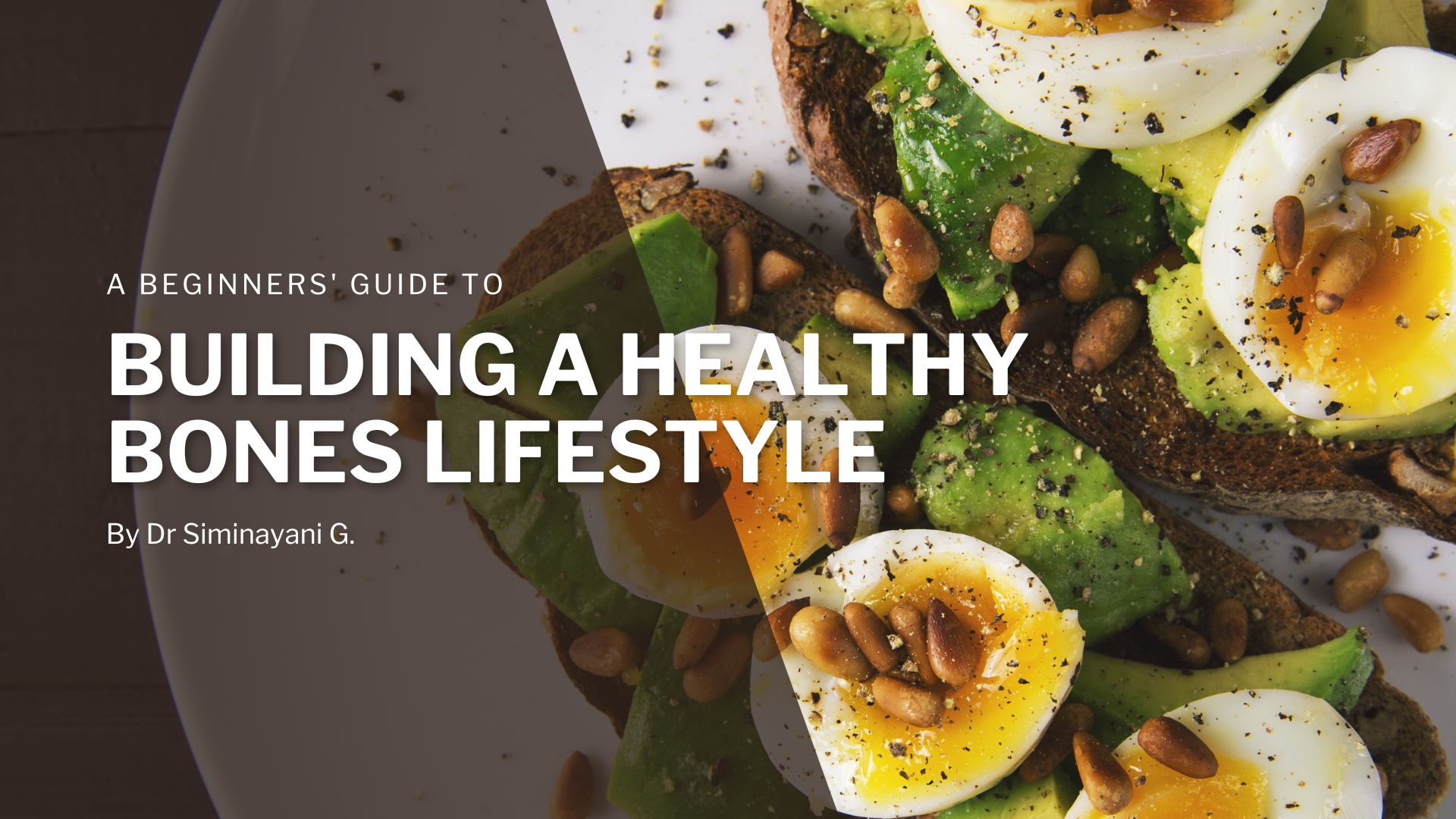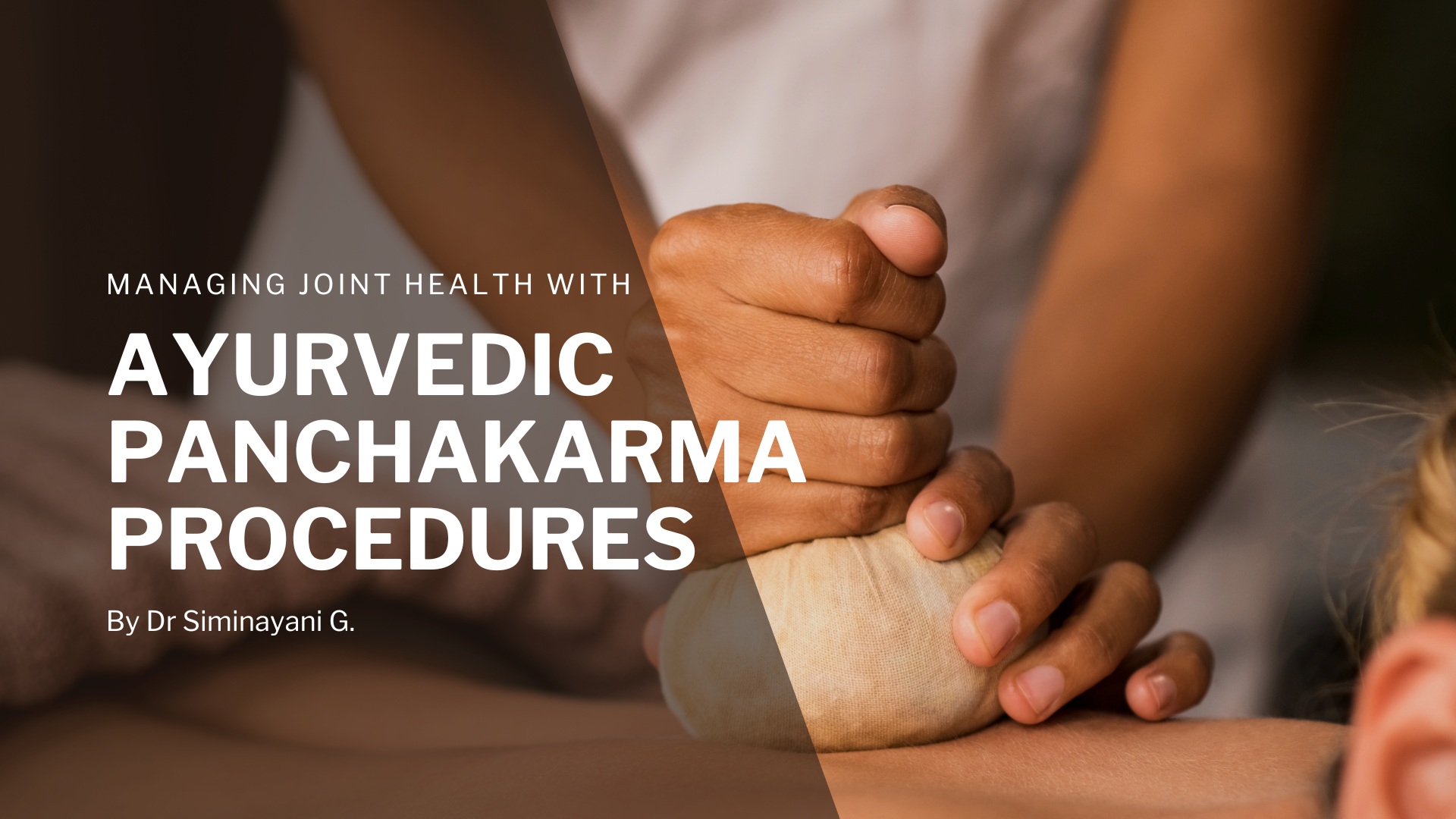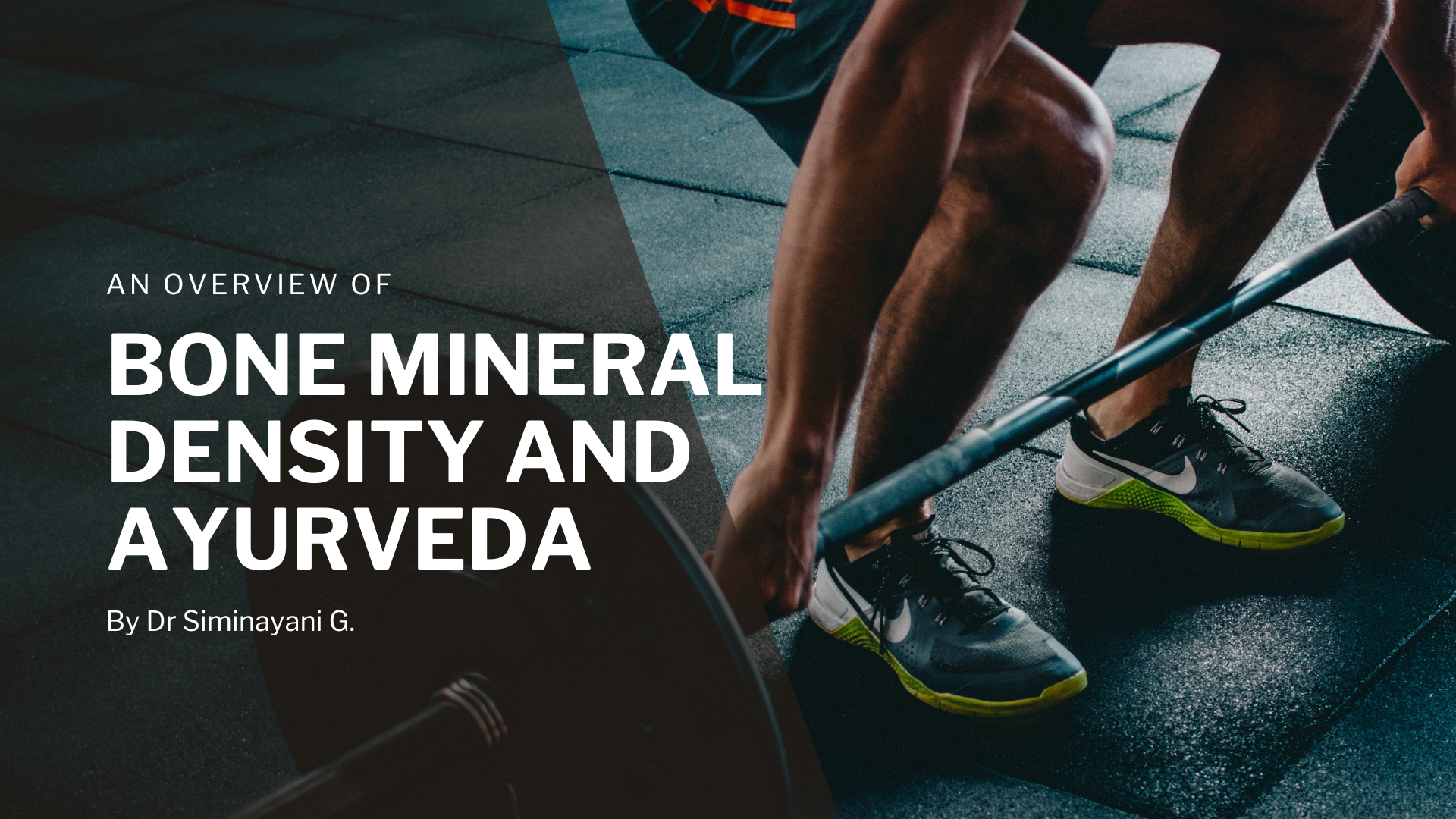How to maintain a healthy-bones lifestyle from an Ayurvedic perspective?
Ayurveda emphasises maintaining the body's three pillars for a healthy life: Ahara (good food), Nidra (good sleep), and Brahmacharya (good discipline or practices).
How is food intake directly linked with Bone Health?
A balanced diet builds and maintains healthy bones throughout life. Bone formation requires a constant supply of nutrients. In Ayurveda, bone tissue is called Asthi Dhatu. Consuming Ahara with Sarvarasa (all six tastes) promotes the proper generation of Rasa Dhatu when Dhatu Agni functions well, leading to the wholesome nourishment of Uttara Dhatu.
What are the Ahara or Foods which promote Asthi Dhatu Poshana?
Foods that are warm, moist, unctuous, adding one spoon of cow ghee to the food, consumption of warm milk, tila or sesame seeds, jaggery, brown rice, green gram, dark green leafy vegetables, coriander leaves, Ginger, turmeric. Fruits like oranges and prunes are beneficial for overall bone development.
What are the Ahara or foods which should be avoided?
Shita Ahara: Excessive consumption of cold food, Kathin padartha sevan: walnut shell/supari (areca nut) etc. Excessive consumption of Tikta/Katu/Kashaya rasa Ahara: Bitter/Pungent/Astringent tasting foods, Excessive consumption of preserved food.
According to Contemporary understanding, what are the micro and macronutrients required for Bone health?
The bones are formed from the cartilage which means when the cartilage becomes hard and brittle by mineralization the bone gets formed so an adequate supply of nutrients helps in better mineralization of bone. So, one should consume foods which are rich in Calcium, Vitamin D, Zinc, Iron, Magnesium, Protein etc.
Micro and Macronutrients |
Sources |
|
1. Calcium |
Dairy products like milk, yoghurt, and cheese are excellent sources of calcium. soybeans, almonds, tofu, and green leafy vegetables are also sources of calcium. Vegan sources fortified soya, rice and oat drinks soya beans, calcium-set tofu, sesame seeds and tahini, pulses, dried fruit such as raisins, prunes, figs and dried apricots, green leafy vegetables such as kale, cabbage and broccoli. |
|
2. Zinc |
Red meat, Pumpkin Seeds, Sesame seeds, cashews, almonds, peanuts, cheese, milk, kiwi, apricots, peaches, and legumes. |
|
3. Vitamin D |
Exposure to sunlight, Vitamin D supplements, and Oily fish such as Salmon, and egg yolks. |
|
4. Iron |
Red kidney beans, Chickpeas, nuts, Soybean flour, liver, red meat, lentils, spinach, Flaxseeds, Mushrooms, Hazelnuts, Cashew Nuts, Almonds, and Peanuts. |
|
5. Magnesium |
Pumpkin seeds, beans, Wholegrains, avocados, Green leafy vegetables, sweet potato. |
|
6. Proteins |
Eggs, Almonds, Chicken, cheese, yoghurt, milk lentils, fish, Quinoa, peanut butter. |
What are the good practices which help in better bone health?
Oil massages with sesame oil or any medicated Ayurvedic oils at least weekly once, strength training, weight-bearing exercises like walking, hiking and dancing, regular use of panchakarma procedures which remove toxins from the body and avoiding smoking and alcohol.
What is the Relationship between Good sleep and bone health?
Studies show abnormal sleep duration and circadian rhythm disruption (e.g., night shift work) can negatively impact bone health, increasing the risk of osteoporosis and fractures. The National Institutes of Health (NIH) recommends 7-8 hours of sleep per night for adults. Reduced sleep can lead to increased cortisol levels, which decrease bone mineral density. However, excessive sleep (more than 8 hours) has also been linked to decreased bone mass. Therefore, optimal sleep is crucial for bone health.


